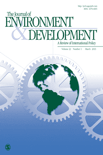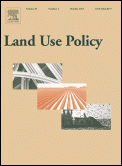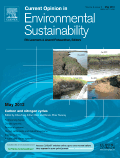
Present Environment and Sustainable Development
Scope & Guideline
Exploring the nexus of ecology, policy, and socio-economics.
Introduction
Aims and Scopes
- Environmental Assessment and Management:
The journal publishes research that assesses environmental impacts, utilizing methodologies such as GIS, remote sensing, and statistical analyses to evaluate changes in land use, water quality, and biodiversity. - Sustainable Development Strategies:
Papers often explore frameworks and models for sustainable development, including circular economy principles, waste management strategies, and community engagement in environmental stewardship. - Climate Change and Resilience Studies:
The journal features studies on the effects of climate change on various ecosystems and communities, investigating adaptive strategies and resilience building in the face of environmental challenges. - Biodiversity and Ecosystem Services:
Research that evaluates the role of biodiversity in providing ecosystem services and the impact of human activities on natural habitats is a core focus. - Socio-Economic Impacts on the Environment:
The journal encompasses studies that investigate the socio-economic dimensions of environmental issues, such as the influence of urbanization, tourism, and public health on sustainability.
Trending and Emerging
- Circular Economy Practices:
There is a growing focus on the circular economy, with studies exploring its implementation in various sectors, particularly construction and waste management, as a means to enhance sustainability. - Climate Resilience and Adaptation Strategies:
Research on climate resilience, including adaptive strategies for communities and ecosystems affected by climate change, has gained prominence, indicating an urgent response to global climate challenges. - Public Health and Environmental Quality:
The intersection of public health and environmental quality has emerged as a significant theme, with increasing studies on the impacts of environmental factors on human health, particularly in the context of the COVID-19 pandemic. - Technological Innovations in Environmental Monitoring:
The use of advanced technologies such as remote sensing and GIS for environmental monitoring and management is on the rise, reflecting a trend towards data-driven decision-making in sustainability. - Social Dimensions of Sustainability:
Research addressing the social aspects of sustainability, including community engagement, social equity, and public perceptions of environmental issues, is increasingly featured, reflecting a holistic approach to sustainable development.
Declining or Waning
- Traditional Resource Management Practices:
There appears to be a reduced emphasis on traditional ecological knowledge and practices in favor of more data-driven, technological approaches to sustainability. - Single-Factor Environmental Studies:
Research focusing solely on individual environmental factors without considering broader socio-economic or ecological contexts has become less common, reflecting a shift towards more integrated studies. - Basic Theoretical Frameworks:
Papers that rely on basic or outdated theoretical frameworks in sustainability research have been less frequent, suggesting a move towards more innovative and interdisciplinary approaches.
Similar Journals

Journal of Environment & Development
Transforming Knowledge into Sustainable SolutionsJournal of Environment & Development is a leading scholarly journal published by SAGE Publications Inc, aimed at fostering an in-depth understanding of both environmental challenges and developmental strategies. With an ISSN of 1070-4965 and E-ISSN 1552-5465, this journal enjoys a distinguished reputation, reflected in its impressive impact factor and Q1 rankings in the fields of Development, Geography, Planning and Development, as well as its placement in the Q2 category for Management, Monitoring, Policy and Law in 2023. Since its inception in 1992, the journal has provided a vital platform for researchers, policymakers, and practitioners to share innovative ideas and impactful research findings. With SCOPUS ranking it among the top journals in its categories, the Journal of Environment & Development is essential for anyone engaged in addressing the complex interplay between environmental sustainability and human development. This journal is particularly valuable for those pursuing interdisciplinary approaches to tackle pressing societal issues. Although it is not open access, its reputable content remains crucial for those invested in these dynamic fields.

ENVIRONMENT DEVELOPMENT AND SUSTAINABILITY
Advancing Sustainable Solutions for a Changing WorldEnvironment, Development and Sustainability is a leading academic journal published by Springer, dedicated to advancing the understanding of the intricate relationships between environmental processes, human development, and sustainable practices. With an ISSN of 1387-585X and an E-ISSN of 1573-2975, this journal provides a platform for high-quality interdisciplinary research that integrates insights from economics, geography, and environmental policy. As of 2023, the journal boasts an impressive impact factor ranking, positioned in the Q2 category for Economics and Econometrics, Q1 for Geography, Planning and Development, and Q2 for Management, Monitoring, Policy and Law. This impressive stature has earned it a significant Scopus ranking, placing it within the top tiers of its field, particularly in Social Sciences and Environmental Science. With a publication timeline extending from 1999 to 2024, the journal serves as a valuable resource for researchers, professionals, and students alike, promoting knowledge exchange and fostering groundbreaking ideas essential for sustainable development. Although it operates under a subscription model, the impact of its articles is profound, making it a pivotal outlet for researchers striving towards sustainability in a rapidly changing world.

Journal of Environmental Science and Management
Exploring critical issues in environmental policy and management.Journal of Environmental Science and Management, published by the University of the Philippines Los Baños College, serves as a vital platform for disseminating research findings and innovations in the field of environmental science and management. With an ISSN of 0119-1144, this journal aims to foster multidisciplinary discussions and advancements in sustainability practices and environmental policy, primarily focusing on the unique challenges faced in the Philippines and similar ecological contexts. Despite being categorized in the Q4 quartile for Environmental Science (miscellaneous) and holding a SCOPUS rank of #191/233, it provides crucial insights and practical solutions for a diverse audience ranging from researchers to policymakers. While it does not currently operate under an open-access model, its commitment to quality research continues to make it a notable source in the environmental science community. The journal covers a broad timeframe from 2011 to 2024, capturing evolving dynamics in the environmental landscape. Contributing to this journal not only enhances the visibility of local and regional environmental research but also aids in addressing global environmental challenges.

LAND USE POLICY
Leading Insights into Land Use and Conservation StrategiesLAND USE POLICY, published by ELSEVIER SCI LTD, is a premier academic journal dedicated to advancing the study of land use issues and policies, with a particular focus on sustainable management and conservation practices. Since its inception in 1984, this journal has established itself as an influential platform in the fields of Forestry, Geography, Planning and Development, and Environmental Science, consistently achieving a Q1 category ranking across various disciplines. With an impressive impact factor and recognition as a top-tier source (e.g., ranking #18/821 in Geography and Planning), it serves as a critical resource for researchers, practitioners, and policy-makers looking to address complex land use challenges. Although it does not offer open access, the journal's articles are widely accessible through institutional subscriptions, enhancing its reach. Researchers and students can find valuable insights into innovative policies and methodologies that promote sustainable land management, making LAND USE POLICY essential reading for anyone engaged in environmental studies and policy development.

ECOLOGY AND SOCIETY
Advancing knowledge at the intersection of ecology and society.ECOLOGY AND SOCIETY, published by the esteemed Resilience Alliance, stands as a paramount open-access journal in the field of ecology, having served the academic community since its establishment in 1997. With an impressive Q1 ranking in Ecology and an Scopus rank of 77 out of 461 in Environmental Science, this journal is dedicated to advancing our understanding of the interconnectedness between human societies and ecological systems. As a pioneer of open-access publishing since 2004, it ensures that cutting-edge research is freely accessible to all, thereby promoting knowledge sharing and collaboration among researchers, professionals, and students alike. The journal fosters interdisciplinary discourse and provides a platform for innovative studies that address pressing environmental challenges, making it a vital resource for anyone engaged in ecological research and practice.

Acta Scientiarum Polonorum-Formatio Circumiectus
Pioneering research at the intersection of nature and technology.Acta Scientiarum Polonorum-Formatio Circumiectus is a distinguished open-access journal published by WYDAWNICTWO UNIWERSYTETU ROLNICZEGO HUGONA KOLLATAJA KRAKOWIE, dedicated to advancing knowledge in the fields of ecological modeling, environmental engineering, nature and landscape conservation, and water science and technology. With a commitment to accessibility since its inception in 2006, this journal provides a platform for researchers, professionals, and educators to disseminate their findings to a global audience. Although currently categorized in the Q4 quartile across various ecological disciplines, the journal's aim is to foster critical discussions and innovative approaches to pressing environmental challenges. The journal is based in Poland, and its scope encompasses a wide array of research areas pertinent to contemporary environmental studies. Acta Scientiarum Polonorum serves as an essential resource in its field, encouraging empirical research and theoretical advancements that collectively contribute to sustainable development and environmental stewardship.

EARTH is a prestigious journal published by MDPI, located in Switzerland, with a commitment to advancing the fields of Earth and Planetary Sciences and Environmental Science. Launched in 2020, the journal emphasizes an open-access publication model, ensuring that high-quality research is widely accessible to the scientific community and beyond. As of 2023, it proudly holds a Q2 ranking in both the Environmental Science and Earth and Planetary Sciences categories, indicating its significant impact within these disciplines; it ranks #90 out of 219 and #70 out of 159 in their respective fields according to Scopus. With the convergence of multidisciplinary research and the critical challenges our planet faces, EARTH seeks to publish innovative studies that foster a deeper understanding of geological and environmental processes. Researchers, professionals, and students alike will find this journal an invaluable resource for the latest findings and discussions shaping our understanding of Earth sciences.

Earth Systems and Environment
Advancing Knowledge for a Sustainable FutureEarth Systems and Environment, published by Springer International Publishing AG, is a leading peer-reviewed journal dedicated to the multidisciplinary study of natural and anthropogenic processes that shape the Earth's systems. With an impressive impact factor and consistently ranked in the Q1 category across various fields, including Computers in Earth Sciences, Economic Geology, and Environmental Science, it stands as a premier platform for researchers and professionals seeking to address pressing environmental challenges. The journal covers a wide spectrum of topics, from geology to global change, and emphasizes innovative methodologies and interdisciplinary approaches to understand and manage Earth systems. As an essential resource for scholars and practitioners, Earth Systems and Environment commits to excellence and facilitates open dialogue on critical issues affecting our planet.

Environmental Processes-An International Journal
Connecting Research and Real-World Solutions in Environmental ScienceEnvironmental Processes-An International Journal, published by SPRINGER INT PUBL AG, serves as a vital platform for researchers and professionals dedicated to the dynamic field of environmental science. Established in 2014, this journal has rapidly gained prominence, currently holding a commendable Impact Factor and achieving impressive Scopus Rankings across various categories, including Q1 status in Water Science and Technology and Q2 in areas such as Environmental Engineering and Health, Toxicology and Mutagenesis. The journal emphasizes innovative research that contributes to the understanding and management of environmental processes and policies, addressing urgent challenges facing our planet. With a focus on high-quality, peer-reviewed content, Environmental Processes invites contributions that explore interdisciplinary approaches, making it a critical resource for scholars, policy-makers, and students invested in fostering a sustainable future through rigorous scientific inquiry. Access options are available for diverse readership, ensuring that essential findings are disseminated widely to inform decision-making and cultivate impact.

Current Opinion in Environmental Sustainability
Exploring Innovative Pathways to a Sustainable FutureCurrent Opinion in Environmental Sustainability, published by Elsevier Science Ltd, is a leading academic journal that specializes in exploring innovative strategies and emerging trends in environmental sustainability. With an impressive impact factor that reflects its esteemed position within the field, this journal is classified as Q1 in both the Environmental Science and Social Sciences categories for 2023, indicating its high-quality and influential contributions. The journal has been at the forefront of sustainability discussions since its inception in 2009 and continues to provide a platform for multidisciplinary research and critical analysis. As a key resource for researchers, professionals, and students alike, Current Opinion in Environmental Sustainability ensures open access to valuable insights while fostering collaboration and knowledge sharing across various domains. This journal not only serves to inform and inspire but also aims to address the pressing challenges of sustainability in our evolving world, making it an essential read for anyone engaged in environmental studies.